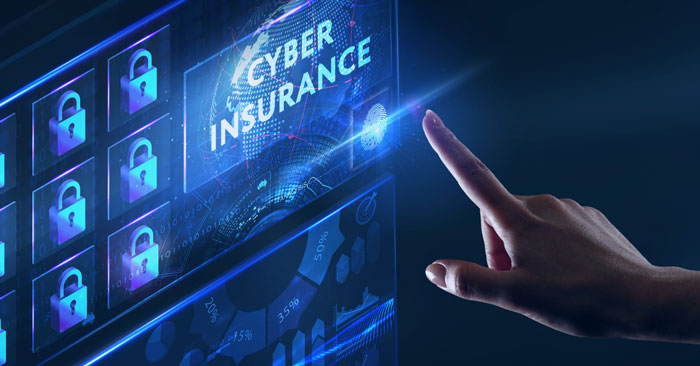We now live in an era dominated by digital interconnectedness and reliance on the internet and our smartphones. Recent research shows that the average time a person is online in 2023, is a whopping 6 hours and 40 minutes.
With this in mind, the need for protection against cyber threats has become more critical than ever. While many individuals recognize the importance of having a fire extinguisher or investing in home insurance, the invisible threat of cybercrime often takes a back seat in our security considerations.

Shockingly, statistics reveal that people are 7x more likely to fall victim to cybercrime than a house fire. This further underscores the necessity for individuals to prioritize personal cyber insurance as an essential component of their overall risk management strategy.
The Invisible Threat
Unlike tangible risks such as fires or burglaries, the threat of a cyberattack operates in the shadows, making it less conspicuous but no less perilous.
In the digital age, where personal information is stored and transactions are conducted online, the potential impact of a cyber incident can be profound, affecting not only finances but also one’s reputation and overall well-being.
The Stark Reality: 7x More Likely
We humans tend to value things we can see, versus things that we can’t. Out of sight, however, should not mean out of mind, as some of the most important information we have about ourselves is now perpetually online.
The alarming truth is that individuals are 7x more likely to experience a cybercrime than a house fire. This statistic should serve as a wake-up call, prompting us to reevaluate our security priorities and recognize the imperative need for personal cyber insurance.
Beyond the Firewall: Understanding Personal Cyber Insurance
Personal cyber insurance serves as a financial safety net in the event of a cyberattack. From identity theft to online fraud, the policy helps cover the costs associated with recovering from a cyber incident, offering a shield against the financial fallout of such threats.
A comprehensive personal cyber insurance policy also provides legal assistance and coverage for expenses related to identity restoration. In the aftermath of a cyber incident, having legal support can be invaluable, helping individuals navigate the complexities of cyber-related legal issues.
As ransomware attacks become increasingly prevalent, personal cyber insurance steps in to cover the costs associated with ransom payments or the recovery of data without succumbing to extortion demands.
Whether it’s phishing scams or unauthorized access to bank accounts, personal cyber insurance includes coverage for financial losses resulting from online fraud, offering a layer of defence against the ever-evolving tactics of cybercriminals.
Personal cyber insurance considers all these nuances and can help you retain peace of mind in a world where the threat of being hacked is omnipresent.
Breaking the Mold: Shifting Perspectives on Cyber Insurance
The reluctance to prioritize personal cyber insurance often stems from its intangible nature.
Unlike a physical threat that can be seen or felt, the risks in the digital realm may seem abstract. However, the frequency and severity of cybercrimes underscore the need to adapt our risk management strategies accordingly.
Personal cyber insurance is a crucial investment in fortifying our digital well-being.
For more on cyber insurance, including understanding options for yourself, click here: https://www.scrivens.ca/business-insurance/cyber-liability-insurance


Comment Policy
Your words are your own, so be nice and helpful if you can. Please, only use your REAL NAME, not your business name or keywords. Using business name or keywords instead of your real name will lead to the comment being deleted. Anonymous commenting is not allowed either. Limit the amount of links submitted in your comment. We accept clean XHTML in comments, but don't overdo it please. You can wrap code in [lang-name][/lang-name] tags.